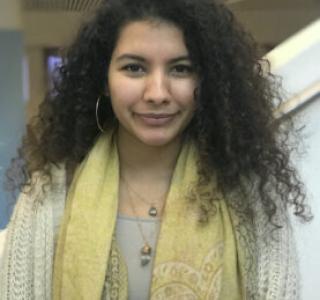Back to overview


Houda Nabih
Project Intern
Contact
Houda Nabih joined the International Centre of Counter Terrorism as a project intern in February 2020. Her work mainly evolves around facilitating various research projects at the ICCT.
As an International Relations and Organizations student at Leiden University, she is specialized in the field of Law, Culture and Development. Her main areas of interest are counter-radicalization strategies, rehabilitation and reintegration procedures, alongside human rights, Sharia law and the interpretations thereof. She has previously conducted quantitative research on how the media coverage of terrorist attacks can influence social prejudice and the stigmatization of Islam in the West.
Houda is a co-founder and the Head of External Affairs of MENA (Middle East and North Africa) student association. She is currently also working on a podcast in collaboration with the Dutch Ministry of Foreign Affairs, where the role and support of The Netherlands in the MENA region will be discussed.